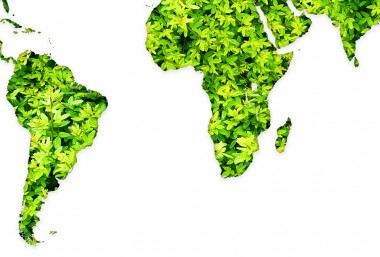The Ministry of Business, Innovation and Employment (MBIE) is considering whether New Zealand should adopt a disclosure of origin requirement in its patent regime, and is also deciding how New Zealand should approach international discussions relating to disclosure requirements. MBIE released an Discussion Document on this topic in September 2018.
A disclosure of origin requirement would mean patent applicants have to disclose the origin of any genetic resources and/or traditional knowledge used in their invention. The intent is to support the rights and interests of states and indigenous peoples in relation to genetic resources and traditional knowledge.
Background
MBIE identified two drivers for this review:
- A disclosure of origin requirement was recommended by the Waitangi Tribunal in the Wai 262 report. The Waitangi Tribunal considered a disclosure requirement would facilitate protection of the kaitiaki relationship that Māori have with taonga species and mātauranga Māori.
- Disclosure of origin requirements are being discussed at an international level, for example by the WIPO Intergovernmental Committee on Intellectual Property and Genetic Resources, Traditional Knowledge and Folklore. MBIE hopes to use the consultation process to inform New Zealand’s approach to these discussions.
Another motivating factor is MBIE’s view that patent applications derived from Māori traditional knowledge or indigenous plants or animals may not be recognised by patent examiners at the Intellectual Property Office of New Zealand (IPONZ), and therefore not referred to the Patents Māori Advisory Committee (PMAC). The PMAC was established by the Patents Act 2013 to consider whether commercial exploitation of an invention might be offensive to Māori. However, despite existing for four years, no patent applications have been referred to the PMAC. MBIE thinks a disclosure of origin requirement would help to ensure that relevant patent applications are put before the PMAC.
A further benefit identified by MBIE is that a disclosure requirement would enable interested groups, such as Māori and government departments, to find information on the use of New Zealand’s genetic resources.
Options identified by MBIE
MBIE identified three possible disclosure options, in addition to the status quo:
- Status quo: Voluntary disclosure
Patent applicants are already required to disclose their invention in a manner that is clear enough and complete enough for the invention to be performed by a person skilled in the art, and to disclose the best method of performing the invention. In practice, this often means describing the source of any genetic resources used in the invention. Applicants can also voluntarily identify inventions derived from traditional knowledge when filing an application at IPONZ.
-
Option 1: Disclosure of country of origin if known
This is considered basic mandatory disclosure. For genetic resources, the country of origin would be the country that naturally possesses those genetic resources. If the country of origin is not known, an applicant may make a declaration to that effect. Disclosure would be a formality requirement when filing a new application, but the disclosure would not be examined by IPONZ for accuracy.
- Option 2: Disclosure of source
This option is more specific than Option 1. For genetic resources, applicants would still have to disclose the country of origin. But if this information is not known, the applicant must disclose any known information relating to the source of the genetic resource. For example, they would need to identify the gene bank that they obtained genetic material from. For traditional knowledge, Option 2 would require applicants to disclose the specific indigenous people or local community who supplied any relevant traditional knowledge. Like Option 1, Option 2 is a formality requirement.
- Option 3: Disclosure of Access and Benefit Sharing (ABS) compliance
Under this option, applicants would be required to disclose the country of origin of genetic resources, the indigenous people that supplied any traditional knowledge and evidence of compliance with the ABS legislation of the country of origin. IPONZ would therefore be responsible for assessing whether compliance with other countries’ ABS conditions had been achieved. Failure to provide evidence of compliance would be grounds for refusal/revocation of the patent.
MBIE prefers Option 2.
Other design features
In addition to the disclosure options described above, MBIE also sought feedback on key design features that could be applied to any disclosure regime. Specifically, MBIE is seeking to define the scope of subject matter terms such as ’genetic resources‘ and ’traditional knowledge’, and the consequences of non-compliance. MBIE is also considering what sort of inventions would ‘trigger‘ the disclosure requirement. For example, some overseas regimes only require disclosure when the invention is a genetic resource, not merely if genetic resources are used to produce the invention.
Next steps
Submissions were due in December 2018. MBIE expects the Government to make a decision on the next steps in the first half of 2019.
Update: 5 December 2019
The Government has announced a whole-of-government approach to address the issues raised by the Wai 262 inquiry. Consideration of a disclosure of origin requirement will be included as part of this work. We believe this is a good outcome, as it will allow a coordinated and holistic approach to the issue.






